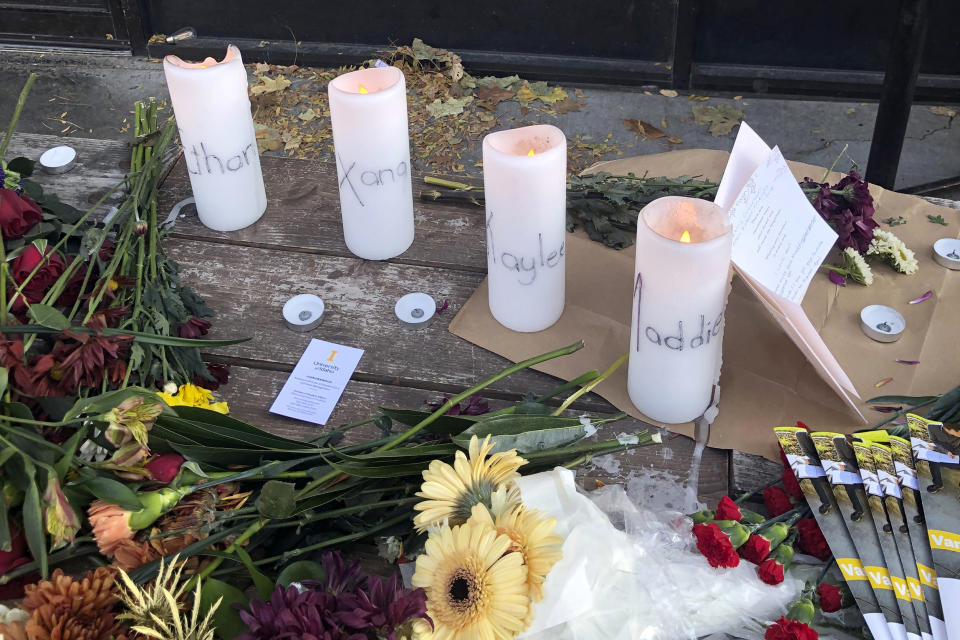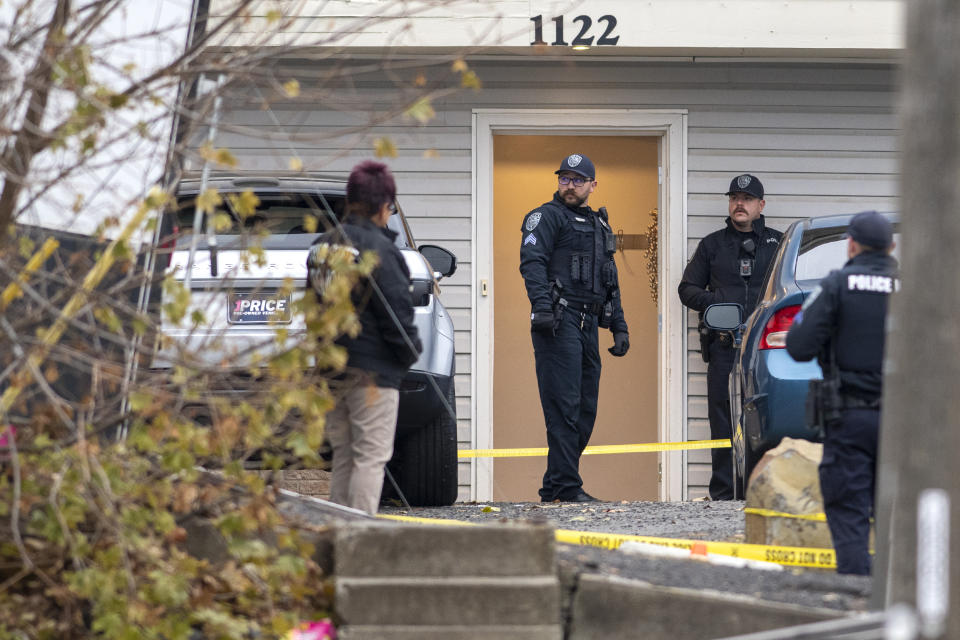How internet sleuthing in unsolved University of Idaho slayings can be 'extremely dangerous'

As authorities continued to release conflicting statements on the killings of four University of Idaho students, mounting questions around the case have fueled frustration toward police and given rise to amateur detectives determined to crack it.
Mourners gathered at the University of Idaho for a vigil Wednesday, the same day the Moscow Police Department described a statement from the Latah County Prosecutor’s Office that “one or more of the occupants were undoubtedly targeted" had been a "miscommunication." The department had also described the homicides as a "targeted attack" following the incident.
With limited details on the case available to the public, many have taken it upon themselves to search for answers.
The hundreds of tips and calls provided to local, state and federal investigators as a result of cyber sleuthing can help — both to pinpoint plausible leads and to rule out potential suspects — but former FBI agents and law enforcement experts say they more often than not are a hindrance to an investigation, divert resources and attention, and can even be harmful by ensnaring innocent people.
"With what police, with all types of training and all of the resources to help solve just about any type of crime, have at their fingertips, it's kind of hard to believe that anyone just banging around the internet is going to be able to solve the crime that we couldn't," Pete Yachmetz, a retired FBI special agent in Florida with three decades at the agency, said. "I just don't fathom it."

But the case of Gabby Petito, a 22-year-old New York native who went missing last year as she documented her cross-country travels on social media with her fiancé, has become a blueprint of sorts for people fascinated by missing persons and unsolved crimes.
Intrigue surrounding Petito's disappearance exploded on social media with a dedicated hashtag racking up more than 1 billion views on TikTok posts as users theorized what happened to her. Petito's body was ultimately discovered in a Wyoming forest. A manhunt ensued for her fiancé, Brian Laundrie, whose skeletal remains were found a month later in Florida.
Now, the homicide in Moscow, Idaho, of the four University of Idaho students — friends Madison Mogen, 21; Kaylee Goncalves, 21; and Xana Kernodle, 20; and Kernodle's boyfriend, Ethan Chapin, 20 — has become a fresh mystery for internet sleuths to speculate over. The three female students lived in the home together with two other roommates, one of whose cellphone was used to call 911 just before noon on Nov. 13. Authorities at the scene said they found the four victims stabbed multiple times seemingly with an "edged weapon," like a large knife. No weapon has been found.

One private Facebook group about the homicides now has more than 32,700 members in which users are dissecting past social media posts the friends made before their deaths, pieced together their interactions with others on their Instagram, Facebook and Venmo accounts, and even named people who they believe could be suspects or say police should interview.
A forum on Reddit has more than 27,000 members with users posing theories and analyzing statements released by law enforcement and family members of the victims.
And on TikTok, posts with the hashtag #idahomurders have more than 94.2 million views, with users questioning if a serial killer is behind the deaths or if the homicides are linked to other similar cases of unsolved stabbings in the region.
Investigators have said the killings don't appear connected to other slayings. Initially, Moscow police told the local community there was no imminent danger and that the deaths appeared to be part of an "isolated, targeted attack." But in the following days, officials walked back that they "cannot say there is no threat to the community," and said Wednesday it is not known if the residence where the bodies were found or its occupants were "specifically targeted."

The conflicting statements have concerned students, while the conjecture based on what people have found through internet searches and social media has apparently vexed Moscow police, who said Sunday they received nearly 500 "digital media" tips to an FBI page dedicated to the case.
"There is speculation, without factual backing, stoking community fears and spreading false facts," the department said in a news release. The city's website about the case also includes a "rumor control" section seeking to tamp down unvetted information.
The Idaho State Police, which is handling inquiries about the case, did not return multiple requests for comment.
Adam Scott Wandt, an assistant professor and vice chair for technology at John Jay College of Criminal Justice, said it's no coincidence that the homicide case of four Idaho college students is gaining traction on platforms like YouTube and TikTok, which he attributes to advanced algorithms that are feeding these types of posts to users.
"Gabby Petito went viral because there's no doubt that TikTok was pushing that hashtag," he said.
But for every case like Petito's in which internet sleuthing can be advantageous — a YouTube video helped to establish a possible crime scene and police to focus their search efforts — there are far more in which armchair investigators are only adding to the noise, Wandt said.
In addition, crowd-sourced investigations can ruin lives, he added, as with what happened when users on Reddit, Twitter and other social media platforms incorrectly identified the suspects in the 2013 Boston Marathon bombing based on photos and videos.
"It's extremely dangerous," Wandt said. "There's a Wild, Wild West aspect to all of this."
Jeremy Reagan, a University of Idaho law student who lives near the crime scene in Moscow, is all too familiar with being wrongly named.
An interview he gave to the media in which internet users said he looked suspicious went viral, and led some to believe he was involved in the students' deaths.
"The fact that I had a nervous smile on my face, people clung to that. 'Oh, he's smiling, he's proud of what he did,'" Reagan said. "But I wasn't asking to be interviewed by a reporter. She literally stopped me while I was taking out the garbage, and I had nothing to hide, so I spoke with her."
Police came to interview him this week, he said, but he made clear that he's actually the victim of online harassment and unfounded rumors in which people went through his old social media posts to try and prove a connection. He recently began answering questions on Reddit in order to dispel the accusations.
"After I posted my side of things, a lot of people have been reaching out and saying, 'Hey, I didn't think it was you' or 'Hey, originally I did think it was you, and after reading through your post, I realized it's not,'" he said.
He added that he understands people's curiosity and wanting to be the one who unlocks a mystery, but it shouldn't come at a cost.
"Sometimes it can help," Reagan said. "But I think a lot of the time what people end up finding or reporting to police just jams up the investigation. It's a waste of time and resources."
This article was originally published on NBCNews.com

